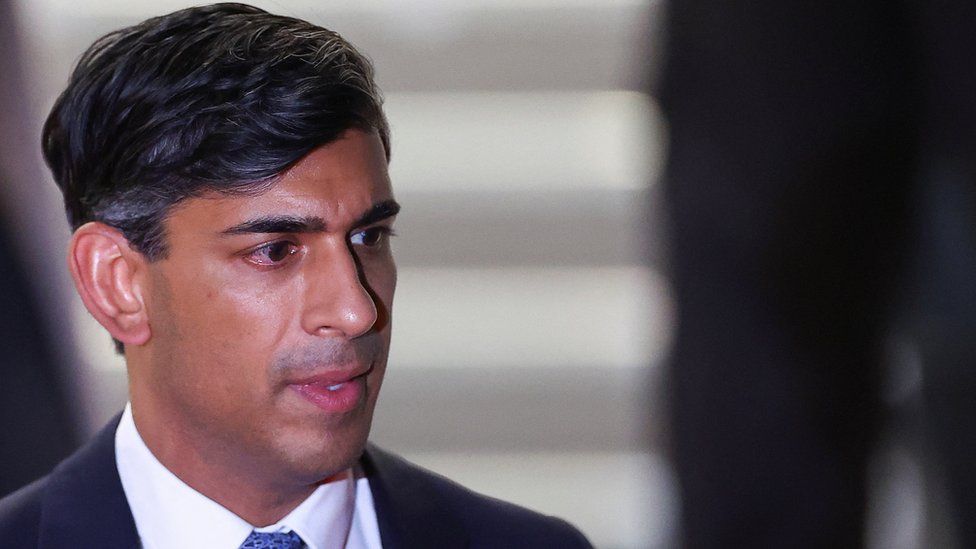ARTICLE AD BOX
 Image source, Reuters
Image source, Reuters
The vote on Rishi Sunak's flagship Rwanda bill is gearing up to be a major test of his authority within his own party
By Henry Zeffman
Chief political correspondent
How much trouble is the government in over Tuesday's vote on the emergency Rwanda legislation?
It is always dangerous to call a potential rebellion. Especially one where some of the most seasoned parliamentary plotters are involved.
But one thing that is certainly safe to say is that the government is in much deeper peril than it appeared to be this morning.
In my conversations with potential rebels on the right of the Conservative Party, their resolve appears to have hardened.
Some MPs who over the weekend appeared inclined to back the government tomorrow in the hope of amending the bill at a later stage now seem much more pessimistic about that possibility.
"There's no way we'd have the votes to amend it next year," one told me. "It's now or never."
Add into that Rishi Sunak's own claim that this is the toughest possible bill, and the European Research Group's (ERG) legal advice which warns that some of the changes they desire may not be possible under the scope of this legislation, and you can see why some Conservatives are now demanding the bill be pulled.
Would Mr Sunak really do that to his flagship immigration policy?
"It would be humiliating for the government," one former minister, who will be supporting Mr Sunak on Tuesday, told me.
And, again, it is hard to see what would change. Constrain the right to appeal further and the One Nation group would begin to get even twitchier.
Plus Mr Sunak himself has warned moves in that direction would mean the Rwandan government pulling the plug anyway.
Vote down or abstain?
So suppose the prime minister presses ahead?
Then the crucial question is not just how many Tory rebels there are, but also in what way they rebel.
To vote against the bill at second reading would be a vote against the principles of the bill rather than just its details. Many Tory MPs will therefore be extremely reluctant to do so.
The rebels may instead prefer to abstain.
One MP on the right said: "I'll vote against if enough colleagues are going to do that to defeat the government. But if just a few want to vote against then I'll abstain."
Clearly if the rebels went through with voting against the government in large enough numbers this would be near-apocalyptic for Mr Sunak in political terms.
That prospect, if the whips tell him it is imminent, may be enough for him to withdraw the bill after all.
Going ahead with the vote and being defeated would potentially presage a leadership election, perhaps even a general election.
But crucially the dizzying possibility of these consequences may well be enough to give many of the potential rebels pause for thought.
So there are still plenty of permutations to how Tuesday may play out.
We might get more clarity from the ERG MPs on how they plan to vote this evening.
But whatever happens, yet another day of public dissent in Parliament displays Sunak's fragile authority over his party.

 11 months ago
25
11 months ago
25








 English (US)
English (US)